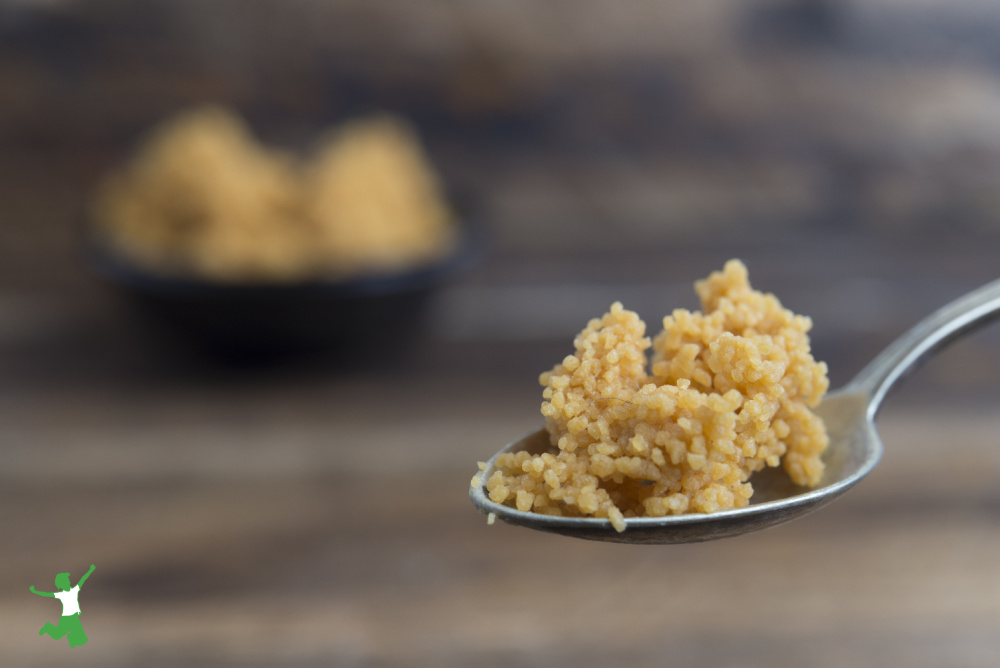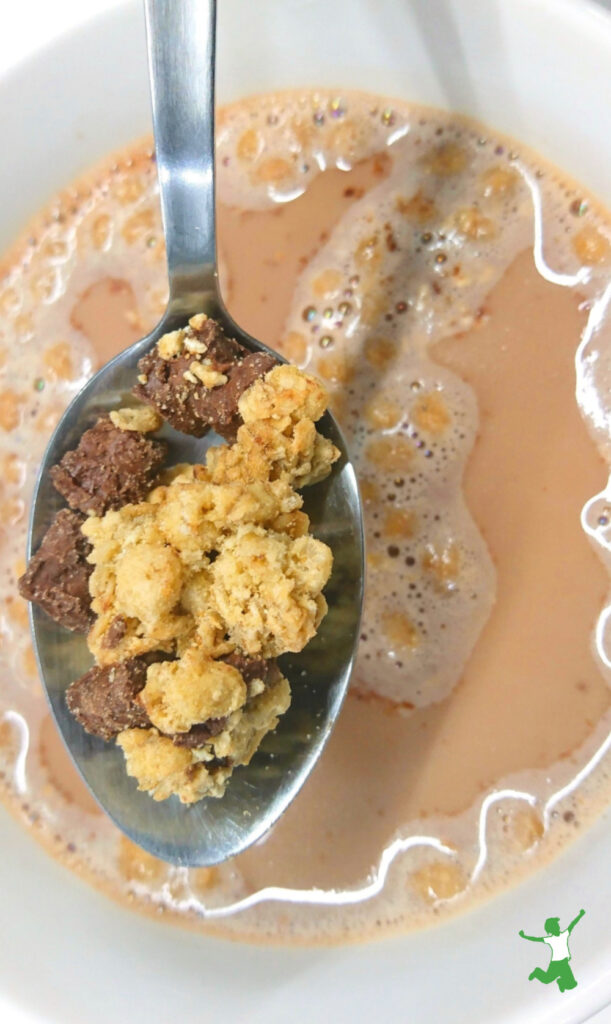The balanced analysis of the additive soy lecithin, a ubiquitous food ingredient even in organic foods. Discussion on when to avoid it, including supplements, and when it is harmless with little need for concern.

If you are an avid label reader like I am, you have surely noticed that the additive soy lecithin is listed in a wide variety of packaged and processed foods. Even products labeled 100% organic frequently contain it.
Soy, commonly called “soya” outside the United States, is one of the most common allergens permeating the world’s food supply.
It is included in the “Big 8” group of major allergenic foods.
The other seven allergens are milk, eggs, fish, shellfish, tree nuts, peanuts, and, of course, wheat.
Allergic reactions to soy range from mild to life-threatening anaphylaxis. The good news is that research has shown that most children allergic to soy will outgrow it by age 10.
The lack of a soy allergy, however, does not mean that soy should be consumed regularly.
Numerous scientific studies warn about the negative hormonal and digestive effects of unfermented soy in the diet.
Note that fermented soy like miso, tempeh, and natto are generally safe if nonGMO and consumed only by those without existing thyroid issues.
What is Soy Lecithin?
But what about soy lecithin?
Lecithin, after all, is a natural and necessary emulsifying substance found in the cells of all living organisms.
It is found in many whole foods such as cabbage, cauliflower, chickpeas, nuts, seeds, and eggs among many others.
When this seemingly innocuous additive is listed on a food label, it is usually one of the very last ingredients. This means that minute amounts are present.
Does a tiny amount of lecithin extracted from soy and added to food as an emulsifier pose a risk to health? It certainly doesn’t compare to exposure from say, a soy milk latte from Starbucks, right?
Could this issue be overblown in the majority of cases?
Soybean Lecithin Manufacturing
To get to the crux of this issue, it is first necessary to understand how soy lecithin is manufactured.
Dr. Kaayla Daniel provides an in-depth analysis that the industry would prefer you not know about in her book The Whole Soy Story.
Dr. Daniel’s research uncovered that soybean lecithin, aka soy lecithin, is actually a waste product from the manufacturing process that produces soy oil. It is extracted from the sludge that is left after the soy oil undergoes a degumming process. (1)
Uses
Soy lecithin has been around since early in the last century when scientists uncovered the many ways to use it after a patented process producing it was developed by companies in Germany.
Today, manufacturers most commonly use it as a food emulsifier to keep water and fats from separating.
Soy lecithin also extends product shelf life thereby increasing the profitability of the wide variety of processed foods that contain it, even infant formula!
Toxic Residues
While soy lecithin derived from soy oil sludge is not necessarily a problem, it is what this waste product contains that gives the most reason for concern.
The extraction of the soy oil from the bean requires the use of toxic solvents like hexane similar to the chemical sprays used to extract every drop of orange juice from conventional oranges.
In addition, commercial soy these days is almost always genetically modified meaning pesticide residue galore.
Adding insult to injury, the soy lecithin which no doubt contains toxic solvent and pesticide residues is bleached to transform the color from a dirty brownish hue to a light yellow.
Allergic Reactions
While the manufacturing process of soy lecithin theoretically removes all soy proteins leaving a product that is hypoallergenic, the reality is something else.
Even tiny amounts of soy protein residue in soy lecithin are a danger to those with soy allergies.
Dr. Daniel’s research identified that one of the three components of soy protein, the Kunitz trypsin inhibitor, capable of triggering a severe reaction in the tiniest of amounts, has been found in soy lecithin via testing. (2)
As a result, if a soy allergy is present, it is best to avoid soy lecithin. Look for products that use an alternative emulsifier. The best choice is sunflower lecithin.
Be sure to double-check the ingredients on your supplements and personal care items too as soy lecithin is widely used in these items as well.
In cosmetics, for example, the addition of lecithin allows the active ingredients to penetrate the skin barrier.
Organic Soy Lecithin
What about those without a soy allergy?
Is avoiding all products containing soy lecithin really necessary as should be done without exception for soy protein and soy oil?
Based on the typical manufacturing methods for this additive, the answer is yes.
It is wise to avoid commercial soy lecithin due to the dangerous solvents and GMO soy that are the inputs to produce it. (3)
However, organic soy lecithin is another matter.
Organic soy is nonGMO is not be extracted using toxic chemicals.
Therefore, small amounts occasionally consumed in processed foods would pose little risk to health.
Isoflavones
For those avoiding soy due to hormonal issues such as low thyroid or breast cancer, the good news is that soy lecithin won’t contribute to the problem.
Contrary to popular belief, the health dangers of soy oil are not primarily from isoflavones. These substances are also called phytoestrogens…plant-derived compounds with estrogenic activity.
Therefore, soy lecithin derived from the sludge of soy oil manufacturing would also be unlikely to contain these hormone-disrupting substances.
Lecithin as a Supplement
Lecithin supplements available in pills, powder, and liquid remain popular for the health-conscious. But, are they really necessary or even a good idea?
According to the Weston A. Price Foundation, lecithin products are marketed for everything from improving cardiovascular health to reversing liver damage. It is even touted as valuable for improving brain function and memory. (4)
The marketing of lecithin as a supplement is typically due to a misguided fear of fat within the context of a low-fat, low cholesterol diet.
Why use a lecithin supplement, particularly one derived from pesticide and hexane-tainted sludge from GMO soy oil to indulge fatphobia?
It is best to obtain lecithin via a traditional diet containing ample quantities of Nature’s Perfect Food…eggs.
And, make sure to eat those yolks and never just the egg whites. Rich, nutritious, brain-building egg yolks contain 30% lecithin!

(1, 2) The Whole Soy Story
(3) From Sludge to Profit
(4) Questions about Lecithin
More Information
Estrogenic Foods Like Soy Trigger Precancerous Breasts
170 Scientific Reasons to Eliminate the Soy from Your Diet
Organic Soy Formula is Dangerous for Babies
Healthy Soy Sauce: The Good, the Bad and the Very Ugly








Great article, but now I don’t want to eat anything that has that in it, if it’s not organic. Thanks for the easy to digest & understand info.
Wouldn’t it be great if every website made commenters take a short quiz to ensure that they’ve read the article before mindlessly commenting?
I have read and re-read the artice. This is the paragraph that states inaccurate information.
“While soy lecithin derived from soy oil sludge is not necessarily a problem, it is what this waste product contains that gives most reason for concern. The extraction of the soy oil from the bean requires the use of toxic solvents like hexane similar to the chemical sprays used to extract every drop of orange juice from conventional oranges. In addition, commercial soy these days is almost always genetically modified meaning pesticide residue galore.
Adding insult to injury, the soy lecithin which no doubt contains toxic solvent and pesticide residues is bleached to transform the color from a dirty brownish hue to a light yellow.”
The extraction of soy oil from the bean DOES NOT require the use of toxic solvents. There is such a thing as mechanically processed soy oil and soy lecithin. And, it happens to be more available than your research indicates. I think it would behoove a reader to read more into the asterisks on their labels and watch for those products containing conventional soy lecithin as opposed to organic lecithin. Organic lecithin would be non-gmo and solvent free.
That point seems to me to be clear in the article. Sorry you were confused.
I can assure everyone here that not all soy lecithin is produced using chemicals. Organic soy lecithin does exist and hexane cannot be used in an organic process. To indicate that soy lecithin “no doubt contains toxic chemicals” is 100% false. There are processors that produce soy lecithin with ZERO use of any checmicals in the extraction process.
I would suggest re-reading the article.
As a consultant in functional Medicine the past thirty eight years and producing liposomed nutrients the past eighteen months using Soy Lecithin as the binder I would point out that Liposomes by-pass the stomach and enter the blood stream via the liver, thereby reducing greatly the chance of allergy!
I have been making homemade “liposomal” Vitamin C using non-GMO soy lecithin. I did try using sunflower lecithin but it left a lot of goo on the bottom of the jar. The soy lecithin mixes completely. I understand eating egg yolks instead of taking lecithin as a supplement, but this is a little different since the goal here is just getting a high dose of vitamin c. The lecithin is a carrier to get the vitamin c into the bloodstream. Do you have any knowledge about this or an opinion? Thank you!
Thank you, Sarah, for always addressing the issues I’m wondering about. You are a gift!
I’m so glad you wrote this! I’ve been trying to avoid foods that contain any soy, ingredients that I can’t pronounce or other harmful ingredients. It’s really hard and frustrating to do so this is so nice to know!
Hi, I just bought a liquid foundation which contains soy lecithin. It is listed as a natural ingredient, but not organic. Would you feel comfortable using this cosmetic product or would you recommend not using it?
Thank you!
Thank you so much!!! You answered my question about soy lecithin & breast cancer & I was afraid that it would be hard to find out!!!